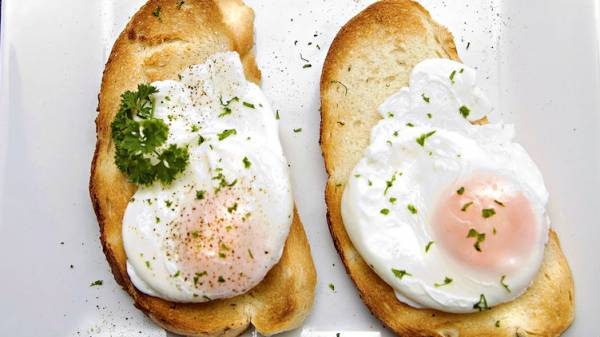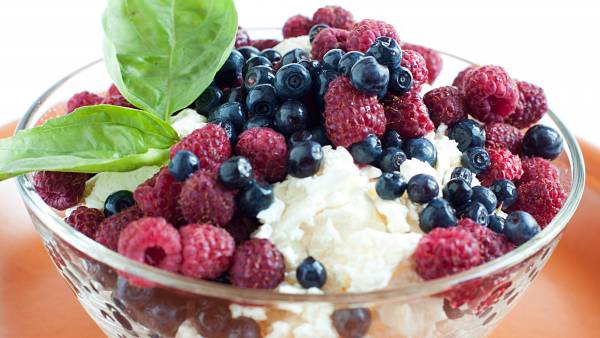When most runners decide to tackle a marathon, they usually either find a training plan online or hire a coach to help get them to the start line in the best running shape as possible. This is a great first step, but it’s only half the battle.
Nutrition is the second piece of the puzzle. Besides a well-executed training plan, a marathon runner must also try to get as light as possible to maximize their power-to-weight ratio while maintaining and building lean muscle mass. This is much easier said than done. It requires the understanding of when, what, and how to eat. Here are basic principles to help you, along with simple recipe ideas.
Proper nutrition during training is imperative for running a strong marathon.
Three Nutrition Principles for Marathon Training: 1. Eat Real Food
Eat real food for fuel and recovery. Sounds pretty simple doesn’t it? Unfortunately, a lot of runners turn to packaged protein bars and recovery shakes as food sources. These options might be great in a pinch, but they are insufficient replacements for real food as they are generally full of sugar and may counteract your attempt to lean out. Eat a variety of colorful fruits and vegetables for nutritional benefits that you can’t get from a package.
For example, blueberries contain anthocyanins, which in some studies have been shown to increase aerobic performance and maximal oxygen consumption (VO2 max). Eggs contain leucine to trigger muscle growth and omega-3s to help with inflammation, making them a convenient and affordable protein powerhouse for athletes.
Healthy Recovery Snack: Toast a piece of bread with a few slices of tomato and Parmesan cheese. Then top with a fried or poached egg.

Avoid pre-packaged convenience food and keep your body running on high-quality nutrition from real food.
Three Nutrition Principles for Marathon Training: 2. Time Your Carbohydrates
Runners and endurance athletes need carbohydrates to fuel their muscles. A low-carb diet will not provide the energy required for long training sessions. Elite marathoners are smart when it comes to timing their carbohydrate consumption. Training for a marathon does not give you permission to eat bowls of pasta at every meal. The ideal time for runners to consume carbohydrates is a few hours before a training session.
For example, if an evening run is scheduled, eat a healthy bowl of spaghetti marinara for lunch. Then for a post-run dinner, eat a salad with lots of protein and a small amount of carbs for recovery. If a run is scheduled for the morning, eat a healthy bowl of pasta in the evening.
Healthy Carbohydrate Meal: Penne pasta tossed with roasted butternut squash, goat cheese, walnuts, and fresh basil.
Three Nutrition Principles for Marathon Training: 3. Maintain Muscle Mass
Maintaining lean muscle mass while trying to lose weight is one of the biggest problems runners face. Loss of lean muscle can quickly lead to injury and hinders a runner’s ability to perform at their highest possible level. To counter the calorie deficit from extended training sessions and subsequent lean muscle mass loss, a runner must pay attention to their protein intake.
Jump-start muscle growth and metabolism first thing in the morning by consuming whey protein either in the form of a breakfast smoothie or by adding a scoop into your oatmeal. Help your muscles recover while you sleep by eating a nighttime snack that contains casein protein. Studies show that casein protein absorbs slowly into muscles, which keeps your metabolism firing and promotes muscle growth.
Nighttime Casein Snack: ½ cup of low-fat cottage cheese mixed with berries, a splash of vanilla extract, and a pinch of cinnamon.

Casein protein found in cottage cheese keeps your metabolism from slowing down while you sleep.
Eat for Endurance
To sum up: eat real food as often as possible, strategize your carbohydrate intake, and make sure your protein intake is adequate. Use these tips and recipe ideas to get to the start line of your marathon as lean as possible, while maintaining and building lean muscle mass during your training block.
You’ll Also Enjoy:
- Get Back to Fighting Weight and Conquer Race Season
- The Unexpected Key to Better Performance and Recovery
- Muscle Endurance and Strength Training: An Ideal Combo for Endurance Athletes
- New on Breaking Muscle Today
References:
1. Masoome Y, et al. “The effect of anthocyanin supplementation on body composition, exercise performance and muscle damage indicates in athletes,” International Journal of Preventive Medicine, 5 (2014): 1594-1600.
2. Res PT, et al. “Protein ingestion before sleep improves postexercise overnight recovery,” Medicine & Science in Sports & Exercise, 44 (2012): 1560-1590.
3. Kirkstick C, et al. “International Society of Sports Nutrition position stand: Nutrient timing,” Journal of the International Society of Sports Nutrition, 5 (2008): 18.
Photos courtesy of Shutterstock.






